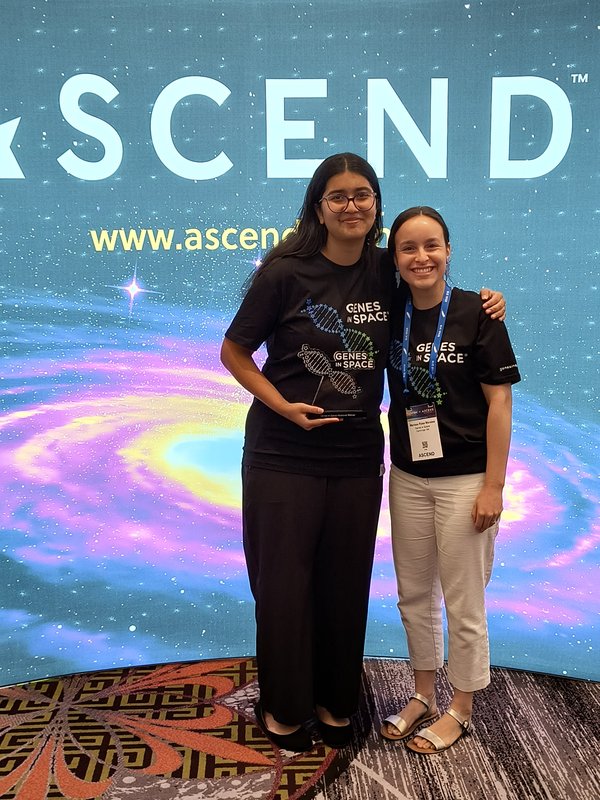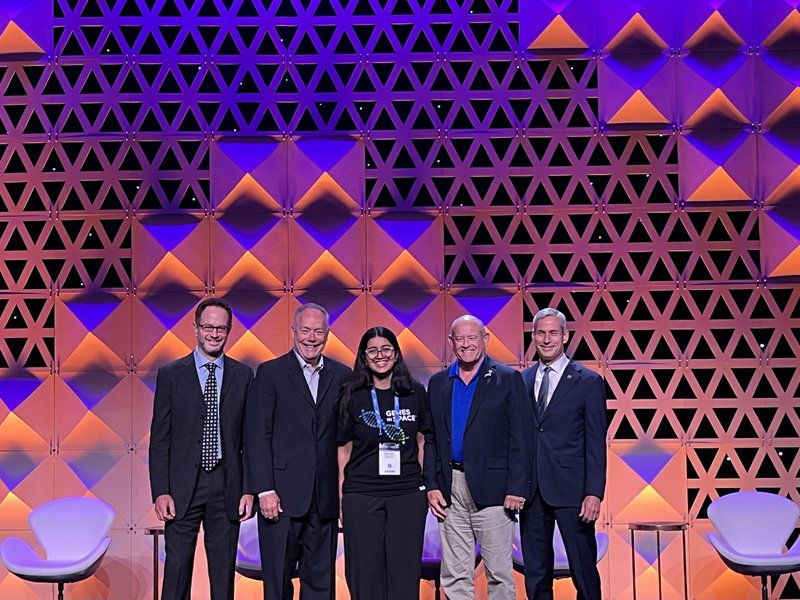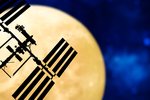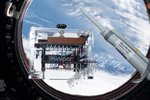2025 Genes in Space Contest Selects Winning Student-Designed Proposal for Launch to Space

2025 Winner Nitya Johar (left) with her Genes in Space Mentor Marissa Morales
● Nitya Johar from Sammamish, Washington, recognized in research competition
● Investigation will mark 10th anniversary of Genes in Space, and become 13th winning experiment performed by astronauts aboard the International Space Station
LAS VEGAS, NV – July 24, 2025 – Nitya Johar, 17, from Skyline High School in Sammamish, WA has been selected the national winner of the prestigious Genes in Space competition. The announcement was made today at the American Institute of Aeronautics and Astronautics (AIAA) ASCEND Conference in Las Vegas. This biology-based research competition, co-founded by Boeing and miniPCR bio, culminates in the winning experiment being conducted by astronauts aboard the International Space Station in the coming year.
The Genes in Space contest challenges students in grades 7 through 12 to design innovative biology experiments that address the real-world challenges of space exploration. This year's competition saw a record-breaking reach, with submissions from 263 schools across 41 states. Five exceptional student Finalist teams presented their pioneering ideas to a distinguished panel of space and science professionals.
"As a co-founder of Genes in Space, Boeing takes great pride in inspiring and supporting the future generation of scientists and innovators. What makes this competition truly unique is the opportunity it gives students to conduct their own research using the world’s leading microgravity laboratory,” said Scott Copeland, director, Boeing ISS Research Integration. “This program has not only sparked creativity and passion among students but has also contributed to groundbreaking research that advances our understanding of molecular biology in space.”

Nitya Johar with Genes in Space Co-Founders Sebastian Kraves of miniPCR bio, Kevin Foley of Boeing, Scott Copeland of Boeing, and AIAA Senior Vice President Keoki Jackson. Photo Credit: Rosa Bañuelos
Johar’s experiment was selected from a remarkably competitive field of 759 submissions from 1009 students nationwide. Her project explores the topic of codon usage bias in space, the non-random use in cells of certain RNA sequences, known as codons, over other RNA sequences to code for amino acids. Unequal codon use could influence how efficiently and accurately proteins are synthesized in space and would have profound implications for the future of spaceflight medicine and biomanufacturing in space environments.
“Codon usage influences how organisms decode their genetic information, and this process may be impacted by the extreme conditions of space,” says Johar. “My experiment works to understand changes in how genetic information is decoded in space, which can have implications for preventative applications such as reliable medicine production and also help pave the way for a new era of space biology where we can engineer life to thrive beyond Earth.”
The other finalist proposals that stood out for their potential to positively impact the future of space travel include:
● Ethan Liaw, 18, from William P. Clements High School in Sugar Land, Texas, whose topic focused on investigating a potential underlying cause of immune system dysfunction in microgravity.
● Ronald Chen, 18, and Tsz Hang Ko, 17, from Stuyvesant High School in New York City, New York, whose project aimed to utilize a specific antibody to reduce the effects of bone loss in astronauts.
● Raymond Le, 17, and Jacquelyn Phan, 17, from Westminster High School in Westminster, California, whose experiment focused on identifying the source of space anemia, a common complication of long-term space travel.
● Geethika Burugupally, 17, from Lake Washington High School in Kirkland, WA, aimed to combat antibiotic resistance in space.
This will be the 13th Genes in Space student experiment performed by astronauts aboard the orbiting laboratory, as the national program celebrates its tenth anniversary. Genes in Space was founded in 2015 as a collaboration between Boeing and miniPCR bio. Since then, the ISS National Laboratory and New England Biolabs have sponsored the program. Previous contest winners have explored phenomena ranging from DNA repair to immune dysfunction and have achieved significant experimental milestones, including the first use of CRISPR/Cas9 gene editing in space.
Rosa Bañuelos, The Boeing Company
+1 (321) 313-3134
rosa.i.banuelos@boeing.com
Boeing Media Relations
media@boeing.com
Marc Bliss, miniPCR bio
+1 781-990-8727
genesinspace@minipcr.com


